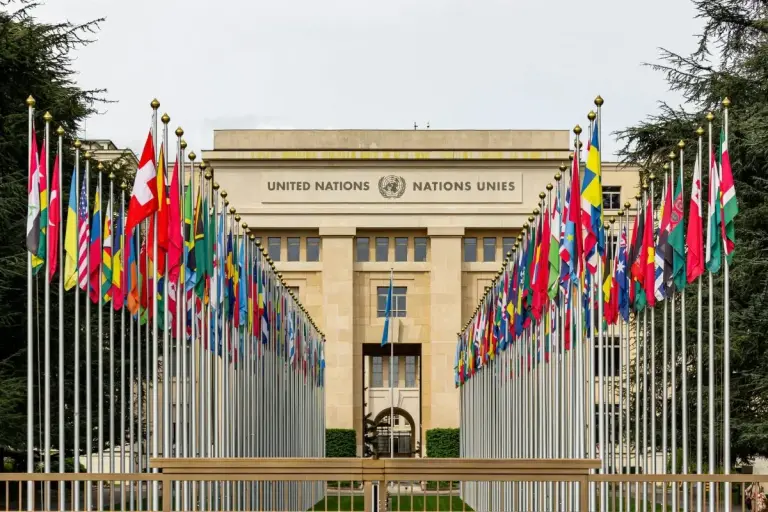Panama will undergo international scrutiny of its human rights record this week during a formal United Nations assessment. The country’s fourth Universal Periodic Review before the UN Human Rights Council begins Wednesday, November 5, in Geneva, Switzerland. This mandatory evaluation occurs every five years for all UN member states and provides a comprehensive examination of Panama’s progress and shortcomings in human rights protection.
The review places Panama among fourteen nations scheduled for assessment during the Council’s session running from November 3 to 14. Panama’s previous examinations in 2010, 2015, and 2020 documented both institutional advances and persistent challenges regarding equity, justice, and social rights. The current administration under President José Raúl Mulino now faces accountability for commitments made during the last review cycle.
Understanding the Universal Periodic Review Process
This evaluation mechanism subjects every UN member state to a regular assessment of its human rights performance. The Examen Periódico Universal relies on three primary information sources. These include the national report submitted by the government itself, observations from independent UN experts and agencies, and contributions from civil society organizations, academic institutions, and community groups.
A working group comprising 47 states conducts the formal review process. Any UN member or observer state may participate by posing questions and offering recommendations to the country under examination. The procedure creates a multilateral dialogue about human rights implementation.
Previous Review Established Ambitious Agenda
Panama’s most recent appearance before the Human Rights Council of the UN occurred on November 3, 2020. Then-Minister of Social Development María Inés Castillo led a delegation of more than twenty officials during that virtual session. They highlighted several government initiatives as evidence of progress.
The 2020 presentation emphasized Panama’s Strategic Plan 2019-2024, the creation of a Council of the Future, and implementation of the Colmena Plan targeting multidimensional poverty reduction in 300 districts. Officials also noted Panama’s ratification of the Acuerdo de Escazú, establishment of the National Mechanism for the Prevention of Torture, and advances in gender parity including Law 56 of 2017 mandating thirty percent female representation on public and private boards.
Panama accepted the majority of recommendations formulated during the 2020 review and committed to strengthening public policies with a human rights focus. [Translated from Spanish]
During the interactive dialogue segment, sixty-four delegations participated in the discussion. Their principal recommendations urged Panama to ratify international treaties concerning labor rights and indigenous peoples, explicitly prohibit discrimination based on sexual orientation or gender identity, improve prison conditions, and accelerate judicial processes for cases involving violence against women and children.
Civil Society Report Highlights Persistent Challenges
An independent assessment prepared by Panamanian human rights organizations presents a less optimistic evaluation. Attorney and human rights defender Magaly Castillo recently detailed these concerns in a published opinion piece. She revealed that ten Panamanian organizations collaborated to produce an alternative report challenging the official government narrative.
Castillo’s analysis warns that structural human rights gaps in Panama not only persist but have worsened. These deficiencies disproportionately affect historically excluded populations. She argues the absence of public policies with intersectional, territorial, and non-repetition approaches prevents effective responses to poverty, inequality, and social exclusion.
Systemic corruption further complicates this landscape by weakening democratic institutions and undermining citizen trust. The lack of transparency in public resource management combined with limited investment in key sectors perpetuates inequitable conditions and restricts fundamental rights access. These concerns will likely surface during the Geneva dialogue.
Accountability for Past Commitments
The 2020 Panamanian delegation included representatives from all three branches of government and numerous public institutions. Alongside Minister Castillo, participants included then-Vice Minister of Foreign Affairs Érika Mouynes, Vice Minister of Government Juana López, Supreme Court Magistrate Ángela Russo, and Senior Prosecutor Maruquel Castroverde serving as Secretary of Human Rights.
Other participants came from the Electoral Tribunal, Ministries of Social Development, Education, and Public Security. The group received support from Ambassador Juan Alberto Castillero Correa, Panama’s permanent representative to the UN in Geneva. The final report from that review gained formal adoption on November 6, 2020.
Five years later, Panama returns to account for its implementation of those accepted recommendations. The current government must demonstrate how those commitments translated into tangible results for Panamanian citizens. This review occurs amid ongoing regional cooperation efforts through the united nations framework addressing shared challenges.
Wednesday’s examination will establish new benchmarks for Panama’s human rights performance. The international community awaits evidence of substantive progress since the last assessment. This periodic scrutiny maintains pressure for continuous improvement in protecting fundamental freedoms and dignity for all people within Panama’s jurisdiction.



